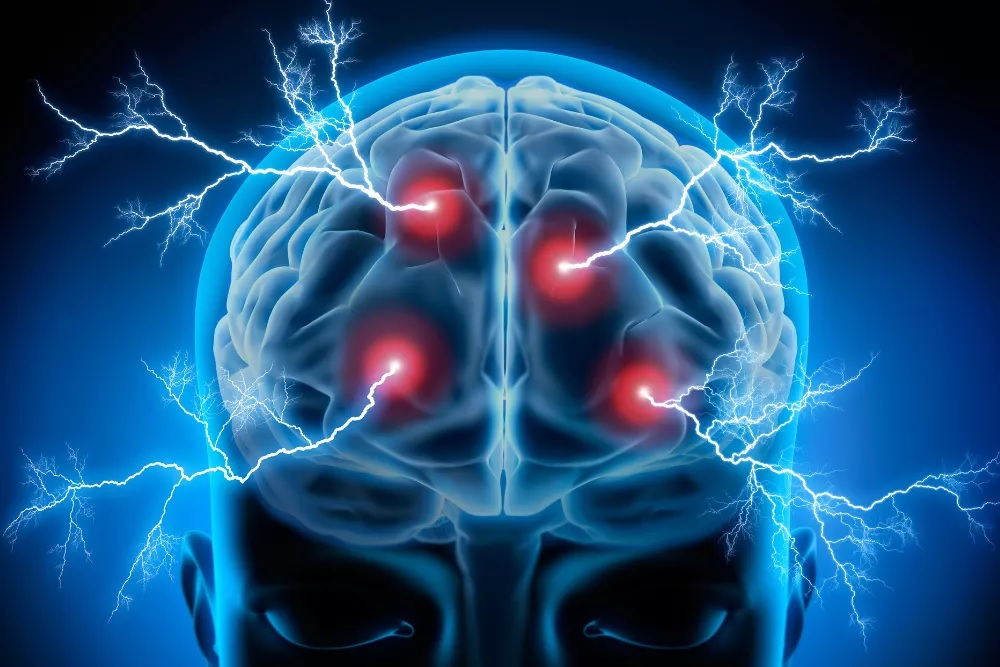Heroin is an opioid drug derived from morphine. It was once used medically as a painkiller but has since been banned due to its highly addictive properties. While all psychoactive substances can lead to addiction, heroin has always been the substance considered most addictive.
So, how does heroin affect the brain? Heroin directly impacts chemicals and neurotransmitters causing a host of short-term and long-term effects on the brain as outlined in this article by Avenues Recovery. However, as leaders in the addiction treatment field, we can assure you that there is hope for heroin addiction sufferers. We’ve helped thousands to turn their lives around and head towards good health and a bright future.
What Does Heroin Do to the Brain?
The brain has protein receptor sites for opiates like opium, codeine, morphine, and heroin. Opioid receptors control respiration, blood pressure, and other bodily processes in reaction to the drug. Humans produce their own opioids, like the feel-good hormone endorphins. The large concentration of opioids in heroin binds to opiate-specific receptor sites causing elevated dopamine levels which in turn causes decreased perception of pain and increased feelings of pleasure. Heroin causes an extreme high characterized by feelings of intense pleasure, relaxation, and a generally positive feeling.

This powerful drug makes lasting changes in the brain, eventually causing the heroin to take the place of naturally occurring dopamine. Over time an addict will not be able to experience pleasure without taking heroin. This causes the person to continually increase the dose in a vicious cycle that dramatically increases the risk of heroin overdose.
How Heroin Affects Brain Function in the Short-Term
Since heroin has a high potential for addiction, even the short-term risk is very real. The pleasurable feeling of using heroin is caused by the drug sticking to opiate receptors in the brain, causing feelings of intense pleasure known as “a high”. This then sets off a pattern of craving for more of the feeling, more drug use, and higher tolerance, and one can quickly and easily find themselves slipping into addiction or overdose.
Immediate negative effects of heroin can include:
- Respiratory depression
- Flushing of the skin
- Heavy extremities
- Dry mouth
- Loss of appetite
- Constipation
- Severe itching
- Mood swings
- Drowsiness
- Disorientation
- Slurred speech
- Impaired thinking
Even before addiction becomes serious, heroin is an incredibly strong substance that can negatively affect a person’s health from just one use.
.png?width=453&height=453&name=Heroin%20Infographic-01%20(1).png)
Long-Term Heroin Effects
Any addiction, but especially one that lasts a long time, can easily affect every aspect of a person’s life. Relationships, employment, self-esteem, mental health, finances, and overall health can all be affected negatively when a person is stuck in the downward spiral of addiction.
Additionally, heroin addiction can cause these long-term problems [1]:
- Collapsed veins
- Tolerance and dependence
- Blood clots due to injection site problems
- Lung infections like pneumonia or tuberculosis
- Stroke
- Overdose
- Liver and kidney damage
- Viral infections like HIV or hepatitis from sharing needles
- Paranoia
- Trouble sleeping
- Emotional instability
- Lying
- Addiction
Can Long-Term Heroin Use Damage the Brain Forever?
If you’re wondering what part of the brain heroin affects, studies show that heroin impairs the white matter in the brain. This can affect the ability to make decisions, regulate behavior, and respond to stressful situations.
In addition, heroin changes the delicate balance of chemicals in the brain and the way the brain reacts to and creates neurotransmitters, as discussed earlier in this article.
Another heroin effect on the brain is its effect on the receptors in the brain that are linked to respiration. A person who abuses heroin will experience slower breathing, even at low doses. When breathing becomes shallow, slow or irregular, the body receives less oxygen. With less oxygen, the brain will begin to reduce function of other systems in the body, which could lead to organ damage. Lack of oxygen could also lead to brain damage.
Lastly, heroin use has been linked to a form of permanent brain damage that is similar to Alzheimer’s disease [2]. It causes inflammation in the brain, along with a build-up of proteins, and can cause long-lasting symptoms of memory loss. It can even induce a form of dementia.
Reversing Brain Damage from Heroin
Some forms of brain damage caused by heroin abuse are permanent. The best treatment for recovery from the ill effects of heroin on the brain and body is to stop using the drug, detox, and treat the addiction.
This should not be attempted without a doctor’s supervision. Medical supervision for heroin detox will likely involve medication management with a drug like buprenorphine. It takes the place of heroin in the brain so that a recovering addict will experience less intense withdrawal symptoms. The use of this in-between will then be tapered by a doctor until your brain can produce dopamine without the artificial heroin as a crutch.
How to Prevent Brain Damage From Heroin
As you now know, heroin effects on the brain are serious and can be lasting. The only way to prevent this is quitting heroin abuse.
As serious as a heroin addiction can be, there is always hope for recovery. Many addicts have worked through the process of recovery and continued on to live happy, healthy, abstinent lives. You don’t have to go through the journey alone. The warm and knowledgeable staff at Avenues Recovery are at hand to answer any and all of your questions. When you are ready, we are available to create a tailor-made treatment plan, welcome you into one of our inpatient addiction rehabilitation centers, and help you on your journey to health and recovery. Contact us today to hear more about how we can help you.
Sources
[1] nida.nih.gov
[2] www.news24.com




.png?width=600&height=448&name=Heroin%20on%20Brain%20Infographic-01%20(2).png)